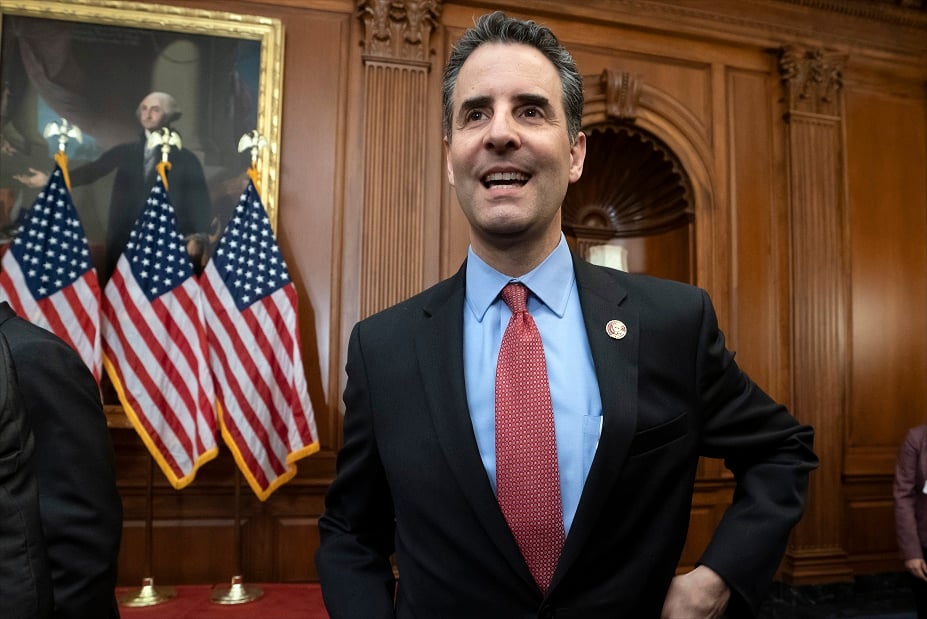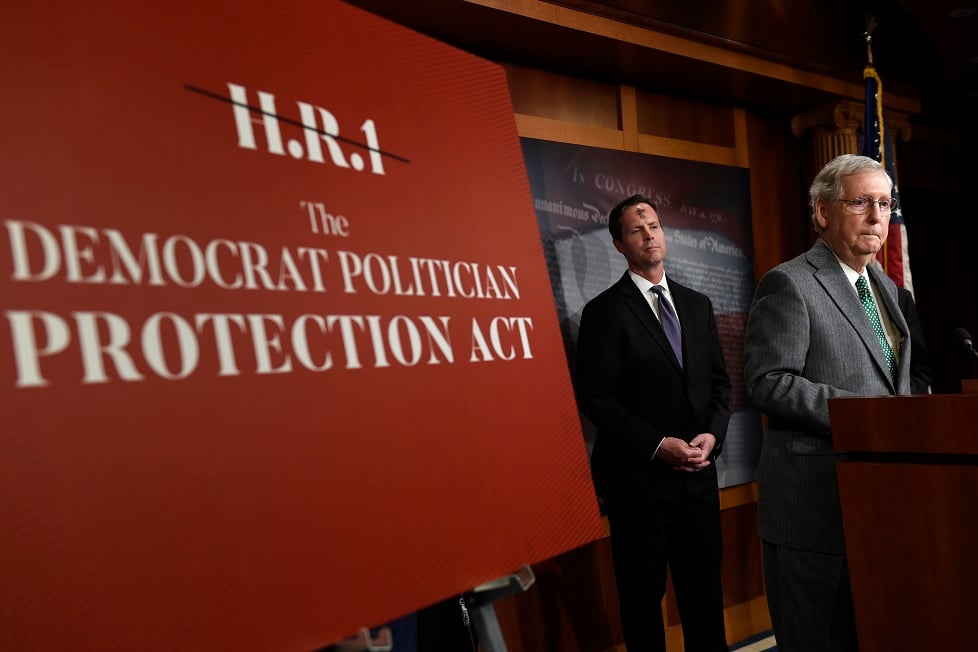WASHINGTON (CN) - The House of Representatives on Friday passed a sweeping elections and ethics reform bill that makes changes to voting registration, redistricting and campaign finance rules, but the measure is unlikely to become law because of Republican opposition in the Senate.
Democrats billed the package as their top priority after sweeping into power in the 2018 midterm elections and Friday's passage is the largest legislative achievement of the new majority.

"We're proud to have assembled H.R. 1, the For the People Act, to restore the voice of the American people and to return to a government of, by and for the people," Representative John Sarbanes, a Maryland Democrat who marshaled the bill, said Friday.
The bill passed the House 234-193, though Senate Majority Leader Mitch McConnell, R-Ky., has said it will not get a vote in the Senate.
The bill is broken into three parts, each addressing a different issue Democrats said have said have plagued recent elections and the operation of the federal government more generally.
The bill requires states to offer online and same-day voter registration for federal elections and to automatically register eligible people to vote when they apply for certain government services, including Social Security benefits and driver's licenses. It also allows voters to offer sworn written statements in place of photo identification and gives states money to modernize their voting systems.
In addition, the legislation also restores voting rights to people convicted of felonies after they complete their prison sentence.
As the Supreme Court gears up later this month to hear multiple gerrymandering cases, the bill also requires states to establish independent commissions to draw congressional districts, giving a panel of the U.S. District Court for the District of Columbia authority to draw districts if a state cannot pass a commission-approved plan.
Taking aim at money in politics, the bill also establishes a voluntary public financing system for congressional campaigns that would match 6-to-1 any contribution of $200 or less to candidates who meet certain conditions.

It also includes restrictions on how outside political groups may operate, requires more disclosure on political advertising and restructures the Federal Election Commission, reducing it from six to five members in an effort to avoid deadlocked decisions.
Among other government ethics reforms, the bill also requires presidents and presidential nominees to release 10 years of tax returns and puts in place an ethics code for Supreme Court justices.
Daniel Weiner, senior counsel at the Brennan Center's Democracy Program, said the legislation is ambitious in its scope, referring to the package as the "gold standard."
"Many of these provisions would be blockbusters standing on their own, to put them all together signals a commitment to really a fundamental overhaul of our democratic systems that is long, long, long overdue," Weiner said in an interview earlier this week.
Some of the campaign finance reform provisions have drawn criticism from the American Civil Liberties Union, which called the donor disclosure requirements "burdensome" and potentially chilling on donors and political speech.
"They will have the effect of harming our public discourse by silencing necessary voices that would otherwise speak out about the public issues of the day," the group wrote in a letter to Congress last week.
The ACLU nevertheless supports the other measures included in the package.
Republicans have also slammed the legislation as intrusive on state control over elections and constitutionally suspect.
Perhaps the most vocal critic has been McConnell, who has derisively referred to the bill as the "Democratic Politician Protection Act." He has said the bill shifts power over elections from states to Washington and is primarily focused on partisan interests.
"What is the problem we're trying to solve here?" McConnell said Wednesday. "We had the highest turnout last year since 1966 in an off-year election. People are flooding to the polls. They're flooding to the polls because they're animated, they're interested. This is a solution in search of a problem. What it really is, is a bill designed to make it more likely Democrats win more often, nothing else."
Jennifer Hijazi contributed to this report.
Subscribe to Closing Arguments
Sign up for new weekly newsletter Closing Arguments to get the latest about ongoing trials, major litigation and hot cases and rulings in courthouses around the U.S. and the world.








